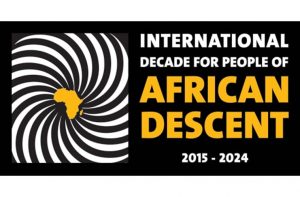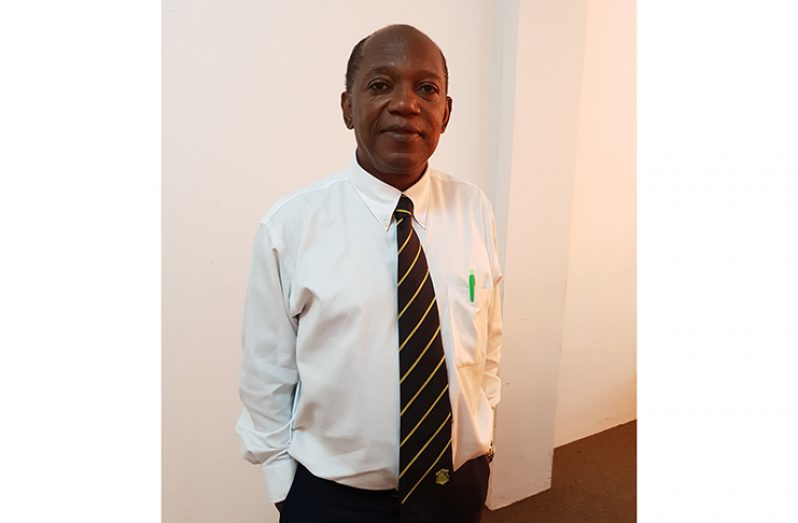The significance of the International Decade for People of African Descent
By Gibron Rahim
EACH year, on August 1, we remember the African ancestors, the suffering they endured under an unimaginably brutal system and their struggle for freedom that culminated in the abolition of slavery. While it is important to celebrate emancipation, it is equally important to remember that the struggle continues.
In an interview with the African Cultural and Development Association (ACDA) Executive Mr. Eric Phillips, he shared some insight on the significance of Emancipation in the context of the United Nations (UN) declaring the period from 2015 to 2024 as the International Decade for People of African Descent. He related to the Pepperpot Magazine that the decade is very significant because it came about as a result of the Durban Conference which acknowledged slavery as a crime against humanity.
The purpose of the decade, Phillips noted, is to allow governments around the world to meet their obligations and ensure that all the issues facing people of African descent are addressed. “Guyana is a signatory and so we have an International Decade Country Coordinating Mechanism (CCM) that’s funded through subvention,” he explained. Phillips noted that the First and Second International Decades of the World’s Indigenous Peoples were observed prior to the International Decade for People of African Descent. Phillips noted that it was only after the Second International Decade that indigenous peoples began to see any significant benefits. “It’s a process,” he affirmed.
THE GOALS
There are multiple goals, as identified by the CCM, for Guyanese of African descent throughout this decade and beyond. “The most significant is, of course, economic security,” said Phillips. They also include cultural rehabilitation as well as education, employment and political security. “There are many groups working on different parts of these issues, or different issues, associated with this,” he explained. The groups include ACDA which deals with issues related to culture and holidays and observances such as Emancipation, African Holocaust and Kwanzaa. The Africa Business Roundtable (ABR) is dealing with the economic aspect while the International Decade Secretariat is addressing employment, among other issues. “The goals will be linked to the Decade,” Phillips related. “There is a plan to deal with each of the five areas that are highlighted in the UN resolution.”
In Guyana, Emancipation is celebrated through regional events. Phillips related that the main event is the Emancipation Festival that is annually hosted by ACDA. He noted, however, that there are almost 70 groups involved in organising Emancipation activities countrywide. “What the government has done is decentralise Emancipation activities,” he said. “For example, in Berbice on August 1, there [was] an event where all the African groups [came]together, instead of 15 African groups doing different things so it’s been more coordinated.”

UNDERSTANDING EMANCIPATION
More still needs to be done to develop Emancipation in Guyana further, however. As explained in a previous interview in the Pepperpot Magazine on July 29, Phillips said, “The nation itself does not understand what Emancipation means.” He added, “The nation doesn’t understand that it was because of Emancipation [that] we have six peoples here.” After Emancipation, the system of Indentureship led to the East Indian, Chinese and Portuguese arriving in Guyana. “People also don’t understand why Emancipation happened, so it’s more of an educational process that needs to happen.”
THE ROLE OF REPARATIONS
Reparations will play in role in Guyana’s achieving its goals for the International Decade for People of African Descent. “The theme of the International Decade is ‘People of African descent: recognition, justice and development’,” Phillips noted. “That’s also the theme of reparations – recognizing that there was a crime, reparatory justice and using the proceeds of that justice for development.”
Phillips explained that the plan is to ask that the government pass an ancestral rights bill in a similar vein to the 2006 Amerindian Act, which he noted as a reparatory justice act. “Were that act to be passed, there’ll be reparations in terms of land and in terms of a fund, similar to what indigenous people have,” he stated. “If that is achieved then a perpetual trust will be established.” That perpetual trust will make the proceeds of reparations available to any Guyanese of African descent, including those of mixed ancestry. “That will go a far way in helping to bridge the inequality gap that exists,” related Phillips. “The gap is significant.”
As an example, Phillips related that there are approximately 3,000 Guyanese of Portuguese descent as of the most recent census. He noted that they collectively own more assets in the private sector than all Afro-Guyanese combined. “They were advantaged during slavery,” Phillips explained. “They were given licences in African villages after Emancipation when Africans couldn’t have licences for their own villages.” The position of monopoly in business and commerce was created after Emancipation by the colonial government he said. “During colonialism, because of racism many benefits were given,” said Phillips, “and those benefits now manifest today in the economy where, for example, shipping, airlines, ecotourism, all these things are monopolised.”
As Guyana progresses through and beyond this International Decade, information and education will play a key role especially when it comes to reparations. “Guyana has some difficulty with reparations because we do not know our history,” stated Phillips. “Most people don’t even recognise that the Amerindian Act is an act of reparatory justice but, in law, that’s what it is.” In a similar manner, he said, Africans have the ideological belief that reparations constitute justice and that it is necessary.
Phillips pointed out that there are two ways of looking at reparations. “There’s the ‘hardware’ part of it and the ‘software’ part of it,” he said. According to Phillips, the ‘hardware’ part refers to the mental aspects of reparations where, for instance, people of African descent still want to change their skin colour or people still believe that white is better. “There’s a lot of psychological repair that has to happen and that’s the software, through education and exposure,” he related. Phillips particularly emphasised the importance of education. “Because history is not taught in our schools, there’s a lot of distortion of our history and politics that has been very damaging to Guyana,” he noted. “That created a lot of suspicion and racism.” Physical reparations are more concrete in terms of economics.
Guyana will be among the countries that will be seeking reparations from Europe. “All Guyanese will benefit from that,” said Phillips. “All Guyanese will also benefit from reparations from the Government of Guyana to African Guyanese because whatever is provided will be replicated throughout the economy.” He pointed out that there will also be greater social cohesion and inclusion. “Part of the issue with social cohesion is that most of the groups that need to cohere are themselves not cohesive,” noted Phillips.
One of the purposes of the International Decade is to help bring about internal cohesion among various African groups according to Phillips. “I think in the interest of Guyana itself, most Guyanese need to become part of a healing process,” he stated. That healing process, he said, starts with constitutional reform where everybody starts to feel that they are equal and where we have more respect for each other. “And that comes through history so until we have history taught in schools Guyanese will always feel disassociated from the movement, yet it’s an integral part of us becoming a nation.”



.jpg)









